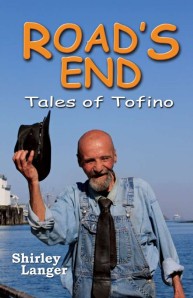At the behest of the very effective Dogwood Institute, here’s my letter to the new Liberal party environment critic,Gerard Kennedy. Oil tankers in the Great Bear Rainforest region, and the attendant Enbridge pipeline, are such monumentally bad ideas that they take my breath away. If we put all that money and effort into sustainable energy strategies and technologies … we’d be there in 20 years. We’d never have another serious energy crisis, or climate crisis, or oil war. Europe is well on its way. I want us to be too.
Dear Mr. Kennedy (Kennedy.G@parl.gc.ca),
As you know, there’s a controversy going on in B.C. over the connected issues of oil tankers and the proposed Enbridge pipeline from the tar sands.
I am a resident of Tofino, in Clayoquot Sound. But i also consider myself a citizen of an ever-shrinking world, and i am doing what i can to make the world a better place for both our children and the larger ecosystems we all depend implicitly upon for our very lives. I am deeply concerned over how corporate needs — for raw materials, for weakened legislation, for unlimited profit — are trumping human needs in every sphere. Our present government understands nothing, it seems, but economic growth, and is content to lay waste to the earth in its bid for a “healthy” economy, no matter how unlivable that world is for people.
Your Liberal party is Canada’s best hope for widening this ruinously narrow vision of our future, and as Liberal Party of Canada Environment Critic you are well placed to have a positive influence over what transpires in coming years. We both know that allowing oil tankers to traverse Hecate Strait, Dixon Entrance, and Queen Charlotte Sound will over time guarantee that oil spills will happen.
Of even greater concern to me is that continuing to build oil infrastructure, especially around dirty tar sands oil, only makes our climate crisis worse, and at the same time distracts us from building a sustainable energy infrastructure. This path is pouring money down a rathole, and makes the consequences for our climate future even more dire than they will apparently be already. It is a grossly irresponsible choice for a government to make.
I urge you and the Liberal party to do what is right: please commit, loudly and publicly, to a legislated ban on oil tankers through Canada’s Pacific north coast. And time is of the essence — please do it before the end of the year.
Thank you for a principled, meaningful stand on environmental issues!
~greg blanchette, Tofino


